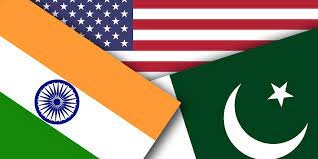Tehran – Western policies, particularly the US policies, have played a complex and influential role over the last decades in the spread of terrorism and escalating regional tensions, particularly between India and Pakistan.
These policies, which ostensibly aimed at combating terrorism and ensuring the security of the region, have actually fostered unrest and intensified conflict. The recent Pehlgam incident is a prominent example of the consequences of these policies and the complex security challenges in the region.
The roots of this crisis date back to the Cold War era when the US poured billions of dollars into Afghan mujahideen through Pakistan through its “operation of cyclones.”
This myopia policy, which has not paid attention to long-term outcomes, has strengthened Pakistan’s network of extremists and paved the way for the emergence of terrorist groups like Afghanistan’s al-Qaeda.
Following the September 11 attack, US policies in the region have failed to curb terrorism. Instead, they exacerbated anti-American and anti-Western sentiment among local people, particularly through drone strikes in Pakistan’s tribal regions that killed civilians.
These actions provided extremist groups with fertile ground that utilized public responsiveness, expanded their ranks, and further threatened the safety of the region.
Pakistan, meanwhile, has been portrayed as our strategic ally and has become a victim of the competition of the great powers. The contradictions and overlaps of Washington’s policy have led to governance and confusion, turning a blind eye to the militant activities within its borders, whilst supporting the Pakistani government on one hand.
The recent India-Pakistan clash, especially in Kashmir, cannot be analysed without this historical context.
In an interview with RT on Saturday, Pakistan’s defense minister, Kawaja Asif, said terrorism in the region was a result of Western policies, particularly US policies, and Pakistan is a victim of these policies. Asif emphasized that “jihad” was created by the West and had a deep impact on Pakistani culture and society.
He said that Pakistan again joined the anti-terrorist coalition after the attacks on September 11th, but these wars are not Pakistan itself and the country is paying a heavy price.
The defense minister also highlighted the worsening security situation after the US withdrawal from Afghanistan in 2021, expressing concerns to millions of undocumented Afghans in Pakistan, saying Pakistan itself is the biggest victim of terrorist attacks in the region.
Rather than fostering peace and stability through economic and military support for selected allies, the United States often promoted tensions and proxy warfare. This support has contributed to the rise of terrorist groups, particularly in countries that have been caught up in sectarian or ethnic conflicts, such as Pakistan and Afghanistan.
Furthermore, US policies, particularly regarding the international terrorist scene, reveal harsh contradictions. While establishing itself as a leader in the fight against terrorism, the United States has supported certain groups sponsoring regional terrorism for strategic interests.
This double standard consistently strengthened extremist groups, perpetuated armed conflicts, and expanded the global terrorist threat.

